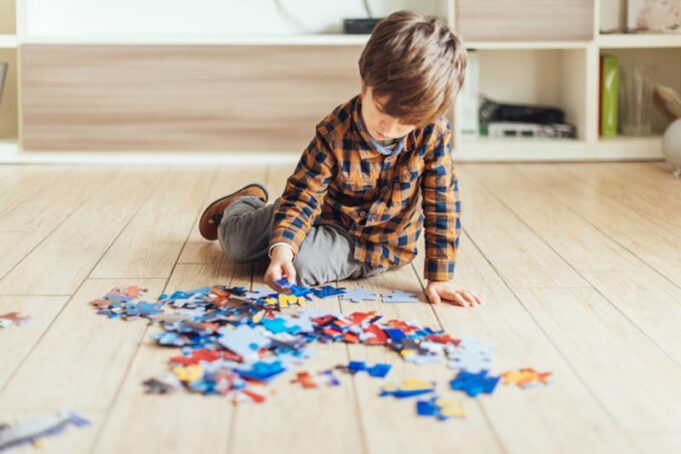We all have grown up playing puzzles without knowing their benefits. Most parents purchase puzzles to keep their children busy and quiet. However, it can do a lot more for your children than just keeping them calm. It is a crucial learning instrument that can be used to enhance the development of a child.
If you are looking to buy some great jigsaw puzzles for your children, visit artandfablepuzzlecompany.co.uk. You can find some fantastic jigsaw games on this website and get some discounts if you are ordering online.
Experts believe that if you keep your child engaged in solving confusing games, it intensifies their brain’s growth. You will get surprised when you see the speedy development of your child’s brain. Let us have a look at some other health-care benefits of puzzles in the evolution of children:
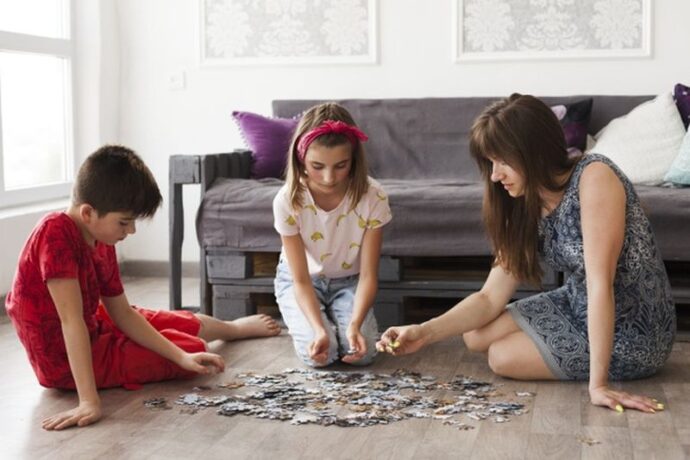
Improvement in patience and concentration
It requires a lot of focus and concentration to complete one jigsaw game. It takes time to assemble all the pieces of the puzzle. It helps develop patience and attention, which is required in the later phases of life. Encourage your children not to stop assembling if they fail once. Teach them to pick the pieces again and try them until they achieve success in it.
Develops problem-solving skills
Solving puzzles are all about creativity or searching for unique ways to solve them. These jigsaw games force the child to think better about how they can fix all the pieces together. It also develops self-assessment in kids.
For instance, if a piece did not fit properly in the game, kids make self-corrections. They stop after making a mistake and try to figure out where that particular part of the game can be fixed. This act helps improve the problem-solving skills in kids.
Provides knowledge about specific topics
Puzzles can be related to different subjects such as geography, parts of the body, habitats, flowers, trees, animals, and many more. It will help your kids to learn anything about any specific topic. You can also use this educational tool by explaining its image to your children. This will improve their subject-wise knowledge as well as vocabulary.
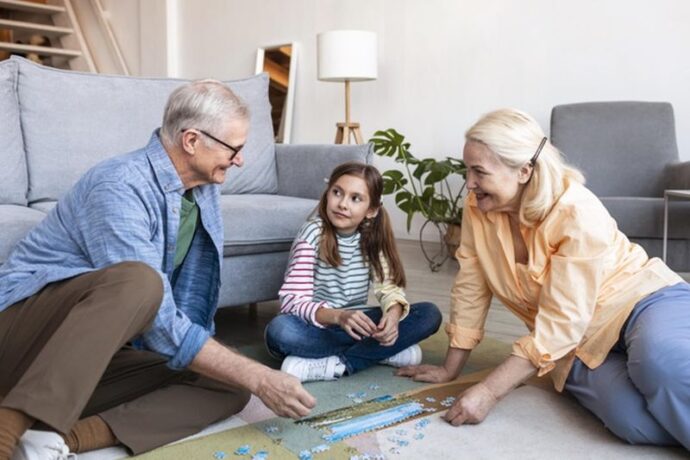
Eye-brain-hand coordination
Jigsaw games enhance eye-brain-hand coordination. Children try to achieve decisions taken by their brains when they see anything, with their hands’ help. This coordination requires a lot of practice. However, this practice is worth it because it develops a perfect relationship among the three ( eyes, brain, and hands). Kids first visualize how the game’s image should look like and then work with their hands accordingly.
Enhancement of vocabulary
Speaking to your children at their early stages of life is essential. It helps in exposing new vocabulary words to your kids. When a child is engaged in solving a jigsaw game, he/she wants to learn about the image they are trying to assemble. They ask questions about the idea to their parents and get to know new words from them. It helps in developing their speech.
Helps in recognizing shapes
In the early stages, Kids are not familiar with the different shapes such as circles, squares, triangles, etc. They might also not be able to distinguish squares from rectangles. However, with practice, they learn about various shapes and their properties. For this, you can purchase puzzles that represent geometrical shapes.
While your child is busy assembling these pieces, tell them about the different shapes’ names and ask them to repeat that after you. This will help them to retain the terms in their memory for a more extended period.
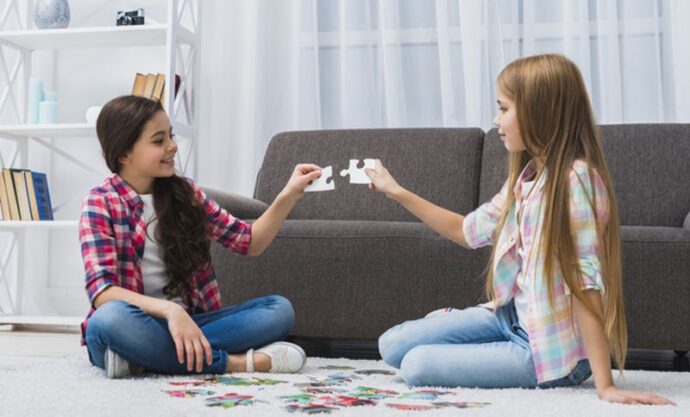
Development of fine motor skills
The chubby hands of tiny babies are not able to have a grip over the small toys. Puzzles are beneficial in enhancing fine motor skills among young babies. These skills involve the movement of fingers, wrists, hands, and feet. Holding the puzzle pieces increases the gripping potential in kids, which will help them hold pencils for writing.
Memory retention
Puzzles increase kids’ reasoning ability to find out how they can join all the pieces together to make the image. The process of assembling the jigsaw game, again and again, helps children memorize different shapes and patterns. So, whenever your kid sees a space in a puzzle, he will quickly recognize which form of the piece can fill that open part.
Development of social skills
Whenever two children play together, they learn the art of socializing. Kids learn important chapters of life when they play together as a team. They might disagree with them, but they will learn to coordinate with each other and resolve their issues with time. Parents should teach their children some courtesy words to use in their speech while playing with other children.
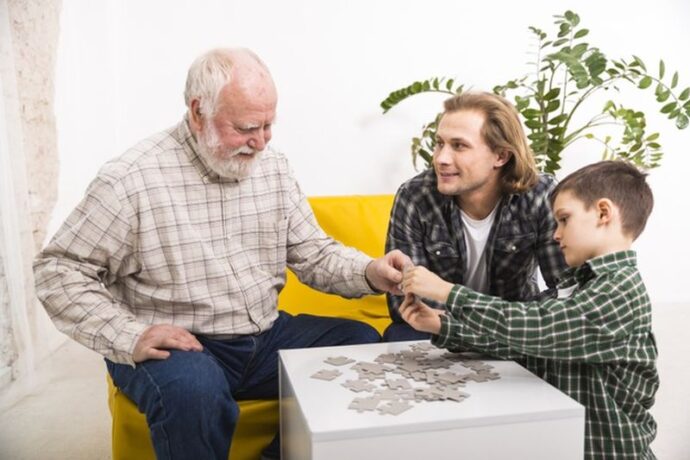
Instilling self-esteem
Boosting up self-confidence in children is very necessary. Finishing a jigsaw game can help bring self-satisfaction and self-confidence among children. The sense of accomplishing a task instills self-esteem in your kids. Puzzles teach kids how important it is to make efforts to complete or achieve their goals.
Parents should always encourage their kids to restart building the puzzle if they fail to assemble it for the first time. Guardians also play a vital role in the development of all these skills among their children. Give your babies a complex puzzle after they get successful in the easy one. This will help in encouraging them to do better day by day.
Online Puzzles
If you’re looking for a way to reap the benefits of puzzles for kids without the physical pieces, consider using an online jigsaw puzzle site like Im-a-puzzle.com. With thousands of puzzles available, kids can choose categories they’re interested in like nature, cars, or animals to make things interesting. In addition, users can even make their own jigsaw puzzles on the site.
To Sum Up
Jigsaw puzzles help develop your child’s brain and come at a very affordable price. They are an even better source of entertainment than television or computers. Purchase jigsaw games that are readily available on the online and offline stores. Let us know in the comments below how puzzles have helped your children?

